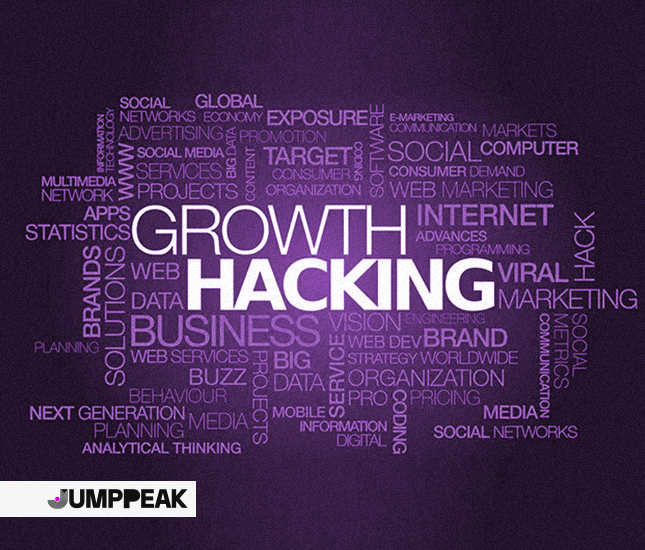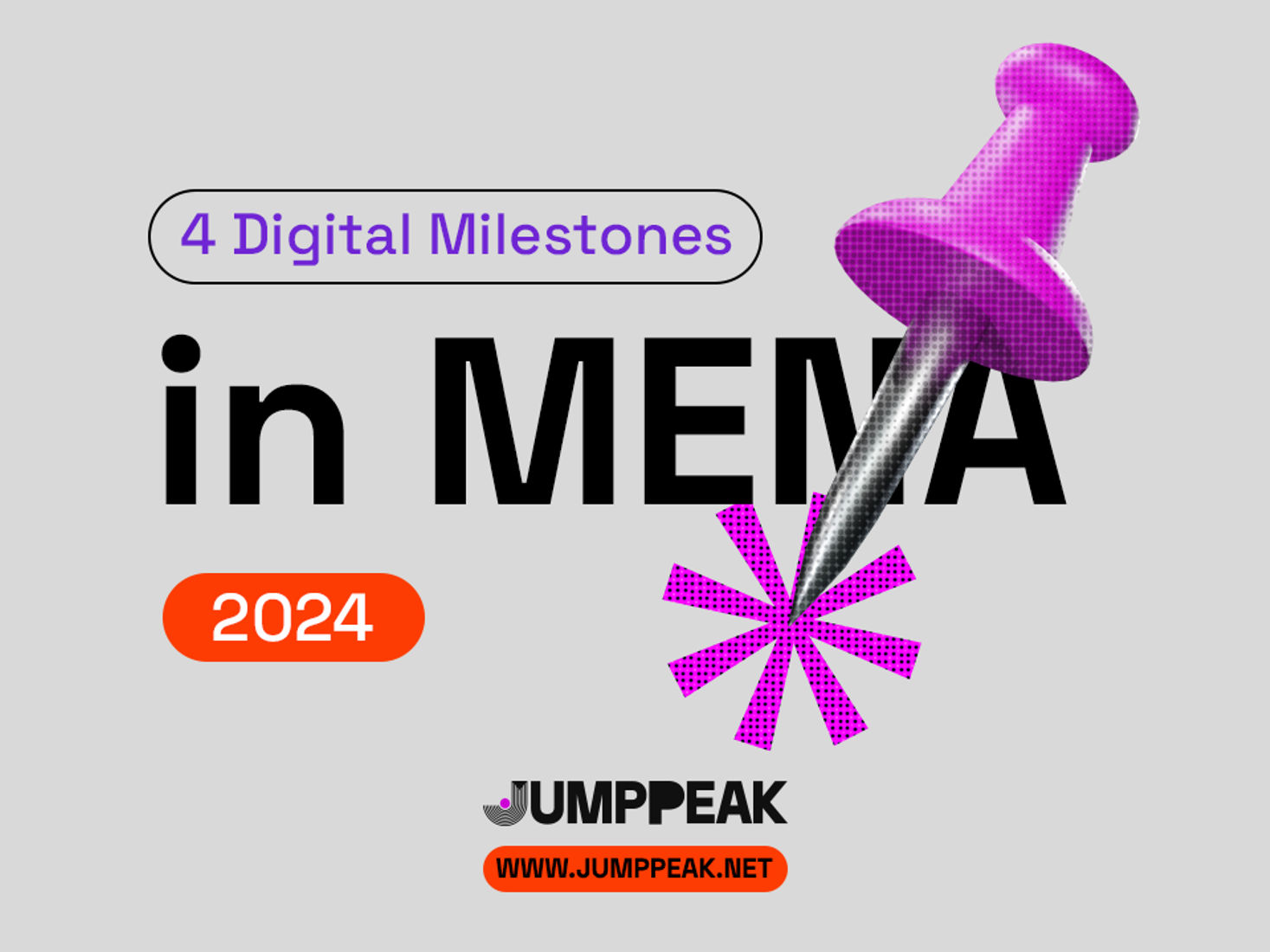Optimizing Digital Strategies for the Gulf in 2025
As technology reshapes industries through the global surge of digital transformation, companies must adapt to meet evolving demands, harness new tools to remain competitive, boost efficiency, and elevate customer experiences.
According to Mckinsey report- 90% of organizations currently are engaged in some form of digital transformation- And with the GCC's Digital Transformation market set to grow by 25.7% annually through 2030 the Gulf is accelerating its digital transformation strategy- according to MarkNtel Advisors- the GCC Digital Transformation Market Research Report - Forecast (2024-2030)- Businesses in Saudi Arabia, the UAE, and other GCC countries are leading the charge by integrating technology and implementing digital strategy solutions.
Here’s how you can benefit from an optimized approach, with real-life examples of businesses that have embraced transformation to succeed.
In this article:
-
The Gulf’s Digital Transformation Journey
-
Key Sectors Driving Digital Transformation
-
The Rise of Digital Transformation in the Gulf’s Medical Sector
-
JumpPeak - digital health marketing agency- Successful Case Studies
-
Finance
-
Education
-
-
Challenges in Digital Transformation
-
Opportunities for Digital Transformation in the Gulf
-
Why Digital Transformation Strategy is Essential
-
Key Elements for Optimizing Digital Strategies in Gulf 2025
-
Key Elements In the Digital Transformation Strategy Mckinsey
-
-
Optimizing Your Customer Service Transformation Strategy for 2025
-
JumpPeak’s Formula for Digital Success & Robust Digital Strategy Solutions
-
The Gulf’s Digital Transformation Journey
The Gulf Cooperation Council (GCC) countries, including Saudi Arabia, the UAE, Qatar, Kuwait, Bahrain, and Oman, have made significant strides toward digital transformation. From smart cities to digital healthcare platforms, the region is at the forefront of leveraging technology to improve economic efficiency, enhance services, and raise the standard of living for citizens.
-
Key Sectors Driving Digital Transformation

-
The Rise of Digital Transformation in the Gulf’s Medical Sector
The healthcare sector has been one of the biggest beneficiaries of digital transformation in the Gulf. The COVID-19 pandemic accelerated the adoption of digital health solutions like telemedicine, electronic health records (EHR), and mobile health apps. In fact, digital health spending in the Gulf has grown by 15% annually over the past five years. By 2023, 70% of hospitals in the region had adopted EHR systems, leading to a 30% reduction in medical errors.
The rise of digital healthcare has not only improved patient outcomes but also created a more efficient healthcare system. Hospitals are now able to manage patient data more effectively, streamline administrative processes, and provide remote care to patients in rural areas. As we look toward 2025, the integration of AI, machine learning, and big data analytics in healthcare will become even more critical.
-
How JumpPeak- digital health marketing agency- Transformed the Digital Landscape for Medical Clients
JumpPeak’s extensive experience- as a digital health marketing agency- in the Saudi medical market has enabled it to provide tailored solutions that meet the unique needs of healthcare organizations.
Through a series of case studies, JumpPeak- digital health marketing agency- has demonstrated its ability to help medical clients overcome digital transformation challenges, enhance patient experiences, and boost overall operational efficiency.
Case Study 1: Medical Clinics
One of JumpPeak's standout achievements- digital health marketing agency- was its partnership with one of the most famous Medical Clinics in Saudi Arabia, a leading healthcare provider in Saudi Arabia with over 30 branches. Faced with sales stagnation and underperforming branches, our respectful client needed a robust digital strategy to revitalize its operations. JumpPeak developed a multifaceted approach, utilizing targeted campaigns on platforms like Meta and Google Ads to drive foot traffic and online engagement.
Between 2021 and 2024, the results were nothing short of remarkable:
-
+60% overall sales growth, largely driven by innovative digital campaigns and installment payment options.
-
+80% increase in online bookings, achieved through personalized recommendations and automated appointment reminders.
-
A seamless integration of live chat and secure online payment options, providing real-time support and improving the patient journey.
The success of our client showcases how a well-executed our business transformation strategy can turn around even the most challenging of circumstances. The key was JumpPeak’s ability to blend data-driven insights with personalized solutions tailored to the medical sector’s unique needs.
Contact Us now for the full case-study and a FREE CONSULTATION from our top-tier experts in the digital transformation.
Case Study No. 2 : Healthcare Pharmacies
In another case, our famous client working in the Pharmaceutical sector , a well-established healthcare provider with over 200 branches, faced challenges in driving sales growth and increasing brand awareness. JumpPeak crafted a comprehensive eCommerce platform and launched targeted digital advertising campaigns across social media and search platforms.
During Saudi National Day 2023, the campaigns resulted in:
-
A 50% increase in foot traffic to physical stores.
-
Significant boosts in online orders for health-related products like vitamins and supplements.
-
High engagement rates across social media, driven by user-generated content and influencer partnerships.
By blending cultural relevance with digital precision, JumpPeak enabled our respectful client to capture new customers and enhance its brand presence during a key promotional period.
Contact Us Now for the full Case-study!

Case Study No.3 : Medical Complex
A Medical Complex, another top healthcare provider in Saudi Arabia, partnered with JumpPeak to overcome operational inefficiencies and improve online presence. JumpPeak employed a strategic digital marketing approach to boost patient bookings through paid advertising on platforms like Snapchat, Instagram, and Google.
The outcome was substantial:
-
A 35% increase in ROI by the first half of 2024.
-
Over 70,000 patient visits to the clinic, thanks to targeted ads and digital campaigns.
-
Implementation of digital tools to centralize communication and track patient progress, drastically improving patient satisfaction and reducing wait times.
Want to know more about the case study in depth and our strategies for each client- contact us now!
Read About Transforming Saudi Arabia's Business Landscape
-
Finance
The financial sector in the Gulf has also experienced rapid digitalization. Fintech startups, digital banking services, and blockchain technology are reshaping the way people manage their finances. Governments in the region have been actively promoting financial inclusion through digital payment platforms and mobile banking apps.
For example, the Saudi Central Bank (SAMA) has been working on developing a regulatory framework to foster the growth of digital financial services in the Kingdom.
By 2025, we can expect even more innovation in the financial sector, with the widespread use of blockchain for secure transactions and AI-powered tools for financial management. Businesses that want to stay competitive will need to embrace these technologies and integrate them into their operations.
Read about the Fintech and Digital Banking in Egypt
-
Education
The education sector in the Gulf has seen significant advancements thanks to digital transformation. The COVID-19 pandemic forced schools and universities to adopt e-learning platforms, virtual classrooms, and digital tools to continue delivering education remotely. Today, educational institutions are increasingly leveraging AI and data analytics to personalize learning experiences for students.
As we move toward 2025, the focus will shift to creating hybrid learning environments that combine the best of online and in-person education. The adoption of virtual reality (VR) and augmented reality (AR) technologies will further enhance the learning experience, making it more interactive and engaging for students.
-
Challenges in Digital Transformation
While the Gulf has made remarkable progress in digital transformation, there are still several challenges that businesses and organizations must address to fully realize the benefits of digitalization.
-
Cybersecurity Concerns
As the region becomes more digitally connected, the risk of cyberattacks has increased. Cybersecurity threats, such as ransomware attacks and data breaches, pose significant risks to businesses and governments alike. According to a report by the International Data Corporation (IDC), the GCC region saw a 30% increase in cyberattacks in 2022 compared to the previous year.
Organizations shall invest in powerful cybersecurity measures, to mitigate these risks- including encryption, multi-factor authentication, and regular security audits- additionally, employees should be trained on best practices for data security to prevent human error from leading to security breaches.
-
Digital Skills Gap
Another major challenge facing the Gulf’s digital transformation is the lack of digital skills among the workforce- Despite governments' commendable efforts to advance digital literacy, a significant skills gap remains between what the digital economy demands and the capabilities of the current workforce -This skills gap is particularly evident in sectors like healthcare and finance, where specialized digital expertise is required.
To bridge this gap, businesses must invest in upskilling and reskilling their employees. Governments can also play a role by developing educational programs that focus on digital skills and promoting partnerships between the private sector and educational institutions.
-
Regulatory Hurdles
In some cases, regulatory frameworks have not kept pace with the rapid digitalization of industries. For example, the lack of clear regulations around data privacy and security in some Gulf countries has hindered the adoption of certain digital technologies. To address this, governments need to create flexible and forward-thinking regulatory environments that encourage innovation while protecting consumers and businesses.
-
Opportunities for Digital Transformation in the Gulf

Despite the challenges, the Gulf region offers numerous opportunities for businesses to optimize their digital strategies and capitalize on the ongoing digital transformation.
According to The PwC's projection that AI could contribute $320 billion to Middle Eastern economies by 2030, with healthcare anticipated to yield substantial gains relative to its industry size - Another PwC report highlights the digital readiness and transformation across GCC countries, detailing sector-specific digital growth potential. The study discusses each GCC country's current digital infrastructure, areas for advancement, and key industries likely to benefit from digital investment, such as healthcare, financial services, and retail. With AI and emerging digital technologies expected to drive significant economic contributions, the report emphasizes how digital strategies will become critical for sustainable growth in the Gulf region- For full details, you can review the source here.
The key digital transformation elements and opportunities in the region:
-
Smart Cities
One of the most exciting opportunities in the Gulf’s digital transformation journey is the development of smart cities. Cities like Dubai, Abu Dhabi, and Riyadh are investing heavily in smart city initiatives that use technology to improve urban living. These cities are integrating AI, IoT, and big data to enhance public services, reduce traffic congestion, and create more sustainable environments.
For businesses, this presents a unique opportunity to offer innovative solutions that support the development of smart cities. Companies that specialize in smart infrastructure, data analytics, and IoT devices will find a growing market in the Gulf.
-
AI and Automation
AI and automation technologies are driving transformative changes across industries in the Gulf region- From healthcare to manufacturing, AI is being used to improve efficiency, reduce costs, and enhance decision-making. For example, in the healthcare sector, AI-powered diagnostic tools are helping doctors make more accurate diagnoses, while in the manufacturing sector, automation is streamlining production processes.
As AI continues to evolve, businesses that invest in AI-driven solutions will be well-positioned to stay competitive in the digital economy. By 2025, AI is expected to play an even greater role in driving innovation and economic growth in the region.
-
E-Commerce and Digital Payments
The e-commerce sector in the Gulf has experienced explosive growth in recent years, driven by the rise of online shopping and digital payment platforms. According to a report by Statista, the e-commerce market in the GCC is expected to reach $50 billion by 2025. The increasing adoption of mobile payment solutions, such as Apple Pay and Samsung Pay, has also contributed to the growth of e-commerce in the region.
For businesses looking to optimize their digital strategies, investing in e-commerce platforms and digital payment solutions is a must. By offering seamless online shopping experiences and secure payment options, businesses can attract and retain customers in an increasingly competitive market.
-
Why Digital Transformation Strategy is Essential

-
Drive Efficiency: An effective digital transformation strategy streamlines operations, minimizes costs, and enhances productivity. For example, Saudi Aramco’s digitization initiatives have enabled predictive maintenance using AI, saving significant costs and reducing equipment downtime.
-
Increase Competitiveness: Companies adopting a digital transformation strategy McKinsey-recommended approach often see increased market competitiveness. This strategic change can include technology adoption, data-driven decision-making, and customer-centric processes.
-
Real-World Successes in the Gulf
-
Healthcare Sector - digital health marketing agency:
-
Example: Saudi Health Ministry’s mobile health apps transformed patient experience by offering virtual consultations and quick access to medical records.
-
Why it Works: A digital health marketing agency tailored the communication to patients, simplifying the digital engagement process.
-
Result: Improved healthcare access and higher patient satisfaction, making healthcare more convenient and accessible.
-
Financial Sector - Business Transformation Strategy:
-
Example: Emirates NBD, a UAE bank, implemented a comprehensive business transformation strategy involving AI-driven chatbots and automation.
-
Why it Works: Using a customer service transformation strategy, they improved response times and personalization.
-
Result: Increased customer satisfaction and lower operational costs, positioning the bank as a digital leader in the financial sector.
-
Retail Sector - Digital Strategy Solutions:
-
Example: Carrefour, a major retail chain in the Gulf, invested heavily in digital strategy solutions to enhance its e-commerce platform.
-
Why it Works: They incorporated advanced analytics and real-time inventory tracking, meeting demand faster and more efficiently.
-
Result: Boosted sales by offering a seamless online shopping experience, increasing customer loyalty and market share.
-
Key Elements for Optimizing Digital Strategies in Gulf 2025
-
Invest in Data Analytics
One of the key elements for optimizing digital strategies in Gulf 2025, building digital transformation strategy, is the Data Analysis - Data is the backbone of digital transformation and any business transformation strategy. Businesses that want to succeed in the digital economy must leverage data analytics to gain insights into customer behavior, improve decision-making, and optimize operations. By investing in advanced data analytics tools, businesses can identify trends, predict customer needs, and make data-driven decisions that drive growth.
In the healthcare sector, for example, data analytics can be used to track patient outcomes, optimize treatment plans, and reduce costs. In the retail sector, data can be used to personalize the shopping experience and improve customer satisfaction.
-
Focus on Customer Experience- customer service transformation strategy

In the digital age, customer experience is more important than ever in your digital transformation strategy or business transformation strategy- Customers expect seamless interactions with businesses across multiple channels, whether online or offline. To meet these expectations, businesses must invest in a robust customer service transformation strategy - with technologies that enhance the customer experience, such as chatbots, mobile apps, and personalized marketing.
By focusing on customer service transformation strategy - in your business transformation strategy- that enhances the customer experience, businesses can build stronger relationships with their customers, increase brand loyalty, and drive sales. For example, in the e-commerce sector, offering personalized recommendations based on customer preferences can significantly boost conversion rates.
-
Focusing on a customer service transformation strategy- in your business transformation strategy in the Gulf for 2025 means embracing a customer-first approach, driven by evolving expectations and a rising demand for digital engagement….and with rapid advancements in AI, chatbots, and real-time analytics, businesses in the Gulf can personalize interactions, anticipate customer needs, and solve issues proactively. In a market where customer loyalty is highly valued, investing in a robust customer service transformation strategy can be a key differentiator.
-
Culturally as one of the key elements of a successful customer service transformation strategy in your business transformation strategy- there’s also an increasing trend toward Gulf-specific customer engagement practices, which prioritize respect, quick resolution, and the inclusion of both Arabic and English support.
-
Training and empowering service teams, leveraging data for continuous improvement, and integrating culturally relevant service practices will be crucial. This customer service transformation strategy not only enhances customer satisfaction but also builds stronger brand loyalty across the Gulf, aligning with the region’s vision for customer-centric growth in the digital era.
-
Embrace Digital Collaboration Tools- Digital Strategy Solutions

The rise of remote work and virtual teams- as one of the digital strategy solutions- has made digital collaboration tools essential for businesses and their digital transformation strategy. Tools like Microsoft Teams, Slack, and Zoom have become integral to the way businesses operate, allowing employees to communicate and collaborate regardless of their location.
To optimize the business transformation strategy, businesses should continue to invest in digital collaboration tools that enable efficient communication, project management, and file sharing. This will not only improve productivity but also foster a more collaborative and innovative work environment.
-
Prioritize Cybersecurity
As businesses become more reliant on digital technologies, cybersecurity must be a top priority in your business transformation strategy. Cyberattacks are becoming more sophisticated , and the consequences of a data breach can be devastating for businesses. To protect their data and systems, businesses must implement robust cybersecurity measures, such as firewalls, encryption, and regular security audits as a crucial part of their digital transformation strategy.
In addition, businesses should adopt a proactive approach in their business transformation strategy to cybersecurity by staying up to date with the latest threats and vulnerabilities. By investing in cybersecurity training for employees and working with cybersecurity experts, businesses can mitigate the risks of cyberattacks and protect their digital assets.
-
Digital transformation strategy mckinsey
The digital transformation strategy mckinsey emphasizes reshaping traditional business structures by fostering agile, data-driven, and customer-centric approaches.
Central to digital transformation strategy mckinsey- is leadership commitment; executives are urged to lead by example in adopting digital tools and fostering an innovative mindset throughout the organization.
The digital transformation strategy mckinsey also suggests integrating advanced technologies like AI and machine learning to automate decision-making and enhance efficiency as a crucial element in your digital transformation strategy.
The digital transformation strategy mckinsey highlights the need to build digital ecosystems—integrated networks of tools, data, and processes—so companies can respond quickly to shifts in the market and customer needs. Another key element is embedding continuous learning and upskilling within the workforce to keep pace with technological advancements and maintain a competitive edge. They recommend a phased approach to transformation, where digital initiatives are scaled progressively while tracking impact and recalibrating as needed.
Moreover, the digital transformation strategy mckinsey suggests that organizations reimagine customer experiences by harnessing data to create personalized services and anticipate customer behaviors. Emphasis on creating cross-functional teams to implement and oversee transformation projects ensures that their digital transformation strategy and business functions are aligned effectively. The overall strategy is about creating a responsive, tech-enabled organization that prioritizes customer experience, fosters agility, and makes informed, data-based decisions.
For more in-depth information Mckinsey digital transformation strategy, you can explore McKinsey’s full insights here.
Read about How to Choose The Right Digital Marketing Agency Solution in Dubai
-
JumpPeak’s Formula for Digital Success & Robust Digital Strategy Solutions
-
Overcoming Obstacles in Your Digital Transformation
Digital transformation, while essential, is not without its challenges. Many organizations in the Gulf struggle with integrating new technologies seamlessly, maintaining cybersecurity, and upskilling their workforce to manage the digital tools. Through its work with numerous clients, JumpPeak has developed proven solutions to address these issues, as follows:
Challenge 1: Complex Integration of Digital Tools
The introduction of digital tools like telemedicine/telecom platforms, EHR systems, and mobile applications often overwhelms the organizations due to the complexity of implementation. JumpPeak provides end-to-end support by ensuring the standardization of processes and offering customized training for staff. This ensures that digital tools are not only implemented effectively but are also adopted smoothly by the staff, minimizing disruptions to day-to-day operations.
Challenge 2: Cybersecurity Risks
With the increase in digitalization comes a rise in cybersecurity threats. JumpPeak’s approach focuses on implementing robust security measures such as multi-factor authentication, encryption, and regular audits. Additionally, JumpPeak works closely with clients to foster cybersecurity awareness among employees, preventing potential breaches caused by human error.
Challenge 3: Managing the Digital Skills Gap
One of the most pressing challenges in the Gulf’s digital transformation is the digital skills gap. Many organizations often find it difficult to upskill their workforce to keep pace with the rapidly evolving digital landscape. JumpPeak addresses this by developing comprehensive training programs and offering ongoing support to ensure that our client’s professionals are equipped to leverage digital tools effectively.
-
JumpPeak’s Formula for Digital Success
JumpPeak’s formula for digital success lies in its ability to craft strategies that align with the specific goals and challenges of each client. Through a customer-centric approach, JumpPeak integrates top-notch digital strategy solutions, cutting-edge technology with personalized care, ensuring that clients not only achieve their objectives but also thrive in a competitive digital market.
The key pillars of JumpPeak’s digital strategy solutions include:
-
Data-Driven Insights: JumpPeak leverages advanced analytics- as one of its digital strategy solutions- to identify trends, measure performance, and make informed decisions that drive growth.
-
Personalization: By focusing on personalized marketing and patient engagement tools in our digital strategy solutions, JumpPeak helps healthcare providers and other clients working in diversified sectors, improve customer satisfaction and retention.
-
Agility: JumpPeak adopts a flexible approach in its digital strategy solutions, continuously monitoring campaigns and making real-time adjustments to optimize performance.
-
JumpPeak’s customer service transformation strategy
A comprehensive customer service transformation strategy in the Gulf for 2025 is essential to meet the increasing demand for high-quality, personalized customer experiences, especially given the region's accelerated digital transformation. Here’s how we incentivise companies in the Gulf to reshape their customer service and meet evolving needs:
1. Digital-First Interactions
-
Omnichannel Integration: Customers expect seamless service across multiple platforms. Gulf companies should unify communication across channels like social media, live chat, mobile apps, and in-store experiences. This allows customers to switch platforms without losing context, creating a smooth journey.
-
AI-Powered Support: AI-driven chatbots and virtual assistants enhance 24/7 availability and responsiveness. By handling routine inquiries, these tools reduce wait times, boost satisfaction, and free up human agents for complex interactions.
2. Personalization through Data Analytics
-
Behavioral Insights: Through advanced data analytics, Gulf businesses gain a deeper understanding of customer preferences, past purchases, and common challenges. This allows companies to deliver tailored responses, make personalized recommendations, and proactively meet customer needs.
-
Real-Time Engagement: Data-driven systems allow for real-time monitoring of customer interactions. This capability supports proactive outreach, such as recommending relevant products or services based on past purchases.
3. Empowered Self-Service Options
-
Comprehensive Knowledge Bases: Many customers prefer self-service over traditional support. Companies should develop detailed, searchable FAQs and knowledge bases on websites or apps, allowing customers to quickly find answers to common questions.
-
Automated Processes: Self-service portals enable customers to handle routine transactions (like returns or order tracking) independently. For example, UAE-based banks have integrated self-service features into mobile apps, allowing users to complete financial transactions without waiting in line.
4. Enhanced Customer Feedback Loops
-
Real-Time Feedback Collection: Surveys and feedback forms can be integrated at key customer touchpoints. Gathering immediate feedback after interactions provides valuable insights for continuous improvement.
-
Sentiment Analysis Tools: By analyzing customer feedback, businesses can identify trends and sentiment shifts. This helps companies respond quickly to issues and improve overall satisfaction.
At the end- JumpPeak has been pivotal in helping businesses across Saudi Arabia and Egypt enhance their customer service through strategic digital solutions. JumpPeak’s expertise in data analytics and AI-based customer support has empowered Gulf companies to refine their service models, improve satisfaction, and strengthen customer loyalty. With JumpPeak’s tailored solutions, businesses can future-proof their customer engagement strategies, meeting the demands of a fast-evolving market.
JumpPeak is at the forefront of helping businesses navigate this digital transformation journey. With extensive experience in the Saudi medical market and a proven track record of success, JumpPeak offers tailored solutions that align with the goals of Vision 2030 and beyond. Whether you’re looking to enhance your digital strategy or optimize your operations, JumpPeak is your trusted partner in achieving success in 2025 and beyond.
Now is the time to embrace digital transformation and optimize your strategy for the future- By taking the right steps today, your business can thrive in the digital economy of tomorrow.
DON’T MISS OUT THIS OPPORTUNITY AND GET YOUR FREE CONSULTATION AND PROPOSAL NOW!














